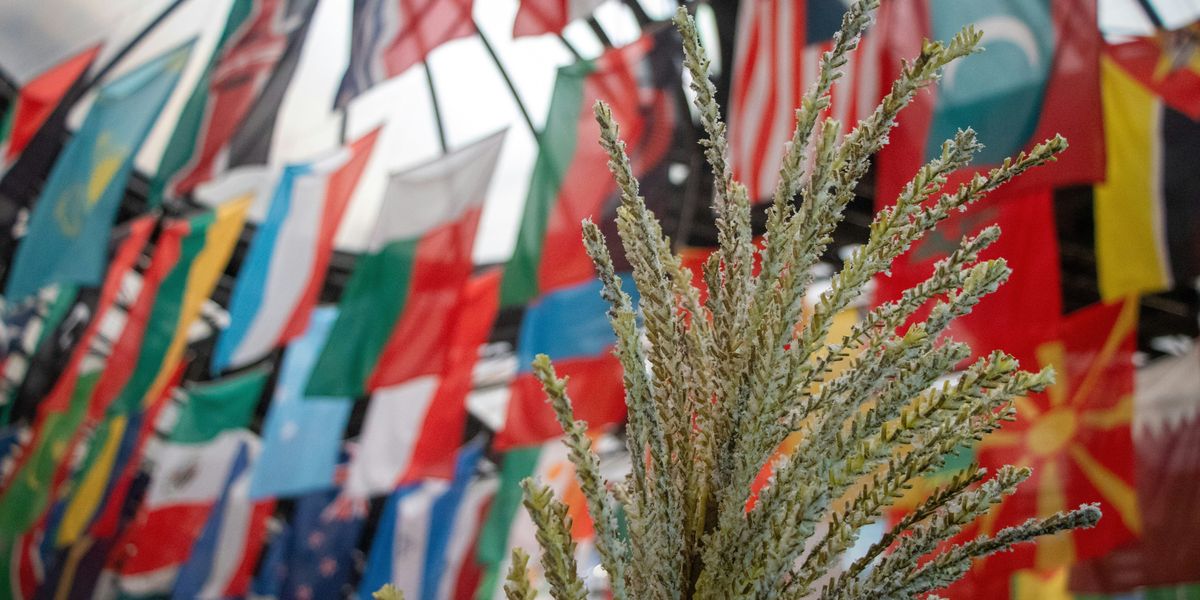conservation
Biden faces pressure to increase Arctic conservation efforts
Over 50 Democratic lawmakers are urging the Biden administration to expand protections in the Arctic, citing growing climate concerns and threats from development.
In short:
- Led by Sen. Ed Markey and Rep. Jared Huffman, the group called on the Interior Department to expand federal protections for Arctic Special Areas.
- The Interior Department is reviewing whether to increase protections across 23 million acres, having already safeguarded 13 million acres in April.
- Lawmakers stress that climate change and development are severely impacting wildlife and indigenous subsistence areas in the Arctic.
Key quote:
“This opportunity to take a renewed look at needed protections is especially timely, as the effects of climate change in the Arctic — from declining sea ice, permafrost thaw, and record temperatures — are felt more acutely than ever before and new extractive development encroaches more and more into important habitat and subsistence areas.”
— letter from more than 50 congressional Democrats
Why this matters:
Rapid Arctic warming and increased industrial activities threaten fragile ecosystems and indigenous communities. Additional protections could prevent further damage, particularly as critical wildlife and plant habitats shrink.
Conservationists work to protect Alabama’s vital delta from climate change and development
Alabama's Mobile-Tensaw Delta, one of North America's most ecologically diverse areas, faces growing threats from climate change and development, prompting conservationists to act.
In short:
- The Mobile-Tensaw Delta is home to over 350 fish species and hundreds of bird species, making it one of the most biodiverse regions in North America.
- Conservation efforts focus on acquiring land, restoring ecosystems and altering dams to protect fish habitats and mitigate climate change impacts.
- Advocates emphasize the importance of collaboration between private landowners, government agencies and conservation groups.
Key quote:
“We’re losing things that haven’t been discovered, and there are things still here that we think are gone.”
— Ben Raines, environmental fellow at the University of South Alabama.
Why this matters:
The delta’s health is crucial to the survival of many species and the ecosystem of the Gulf of Mexico. Protecting it ensures the preservation of one of the most biologically diverse areas in the United States.
Related EHN coverage:
Scientists suggest storing Earth's biodiversity on the moon
Faced with mounting extinction threats, scientists propose a lunar biorepository to preserve Earth’s biodiversity as a safeguard against climate change and other disasters.
In short:
- A team of international experts has suggested creating a lunar vault to store frozen biological samples of endangered species, offering a backup against terrestrial threats like climate change and war.
- The moon’s cold environment could preserve these samples without human intervention, ensuring they remain viable for future cloning and biodiversity restoration efforts.
- Although costly and challenging, the proposal aims to protect biodiversity while urging continued efforts to preserve species on Earth.
Key quote:
“If you say: I’m going to do it this way, and it doesn’t work, what’s plan B?”
— Dr. Mary Hagedorn, Smithsonian’s national zoo and conservation biology institute
Why this matters:
As climate change and habitat loss accelerate species extinction, safeguarding biodiversity becomes crucial for the planet's ecological balance. A lunar biorepository offers a unique but controversial solution by protecting genetic material from disasters that threaten Earth's existing conservation efforts.
Related EHN coverage:
House Agriculture Committee faces challenges in passing new farm bill
A new farm bill faces partisan hurdles as the House Agriculture Committee begins markup this week.
In short:
- The proposed bill includes increased conservation funding but removes climate change focus from programs established by the Inflation Reduction Act.
- The bill proposes changes to nutrition assistance, aiming to reduce costs and promote healthier diets, which Democrats argue will harm those in need.
- Senate Democrats have a competing framework that retains climate-focused funding, contrasting with the House version.
Key quote:
“We urge the committee to avoid nutrition program provisions that would harm the most vulnerable among us and to build upon popular climate-focused conservation tools that help farmers mitigate the impacts of climate change.”
— Rob Larew, president of the National Farmers Union
Why this matters:
The reallocation of funds away from climate-focused programs has sparked concern among environmentalists and scientists. These initiatives, initially designed to address climate resilience in agriculture, aimed to reduce greenhouse gas emissions and promote sustainable farming practices in the face of a changing climate. By removing this focus, critics argue, the bill undermines efforts to mitigate the impacts of climate change on agriculture, potentially leaving farmers less equipped to handle extreme weather patterns and long-term climate shifts.
Be sure to read Daniel Imhoff’s 2018 piece: It’s time for a climate resilient Farm Bill
Struggle for African penguin survival intensifies
African penguins face extinction by 2035 unless immediate conservation action is taken, warns a leading seabird conservationist.
In short:
- African penguins have lost 99% of their population over the past century and are declining at a rate of 8% annually.
- Legal action has been initiated against the South African government for failing to protect these endangered seabirds.
- The penguins’ main food sources, sardines and anchovies, are being depleted by commercial fishing, further threatening their survival.
Key quote:
“We cannot let a species go extinct on our watch.”
— Kate Handley, Biodiversity Law Centre
Why this matters:
African penguins serve as a key indicator species; their decline signals profound ecological shifts that could have cascading effects on other marine life and the health of the oceans. Native to the coastlines of southern Africa, these penguins have faced relentless threats, primarily from oil spills, overfishing, and climate change, which have drastically reduced their food sources and disrupted their breeding habitats.
Also see: Scientists race to save seabirds threatened by climate change
Wildlife refuges face budget cuts, risking operations and conservation efforts
In a recent funding resolution, wildlife refuges across the nation are confronting a significant $14 million budget cut, endangering visitor centers, wildlife management, and the already limited number of wildlife officers.
In short:
- The Senate's approval of a temporary funding resolution falls short for wildlife refuges, leading to potential closures and reduced wildlife management.
- Wildlife refuges, essential for species conservation and climate change adaptation, struggle with inadequate funding, affecting their operation and maintenance.
- Comparison with the National Park Service highlights the disparity in funding and attention, despite the crucial role of wildlife refuges in conservation.
Key quote:
“We were hoping for at least flat. But for them to take a 2.6% cut when we’re already heavily underfunded is going to create additional problems.”
— Mike Leahy, National Wildlife Federation’s senior director of wildlife, hunting and fishing policy
Why this matters:
This funding shortfall comes at a time when the importance of natural lands for climate change adaptation is increasingly recognized. The budget cuts to wildlife refuges not only undermine conservation efforts and public access but also highlight a larger issue of resource allocation and prioritization at the federal level, affecting both the environment and public health.
In 2020, Peter Dykstra wrote that a long-dormant threat to the Okefenokee wildlife refuge—a vast, mostly protected wetland straddling the Georgia–Florida border—had roared back to life.
Patagonia spends $71 million on wildlife conservation and politics
$71 million of the clothing company’s earnings have been used since September 2022 to fund wildlife restoration, dam removal and Democratic groups.



















